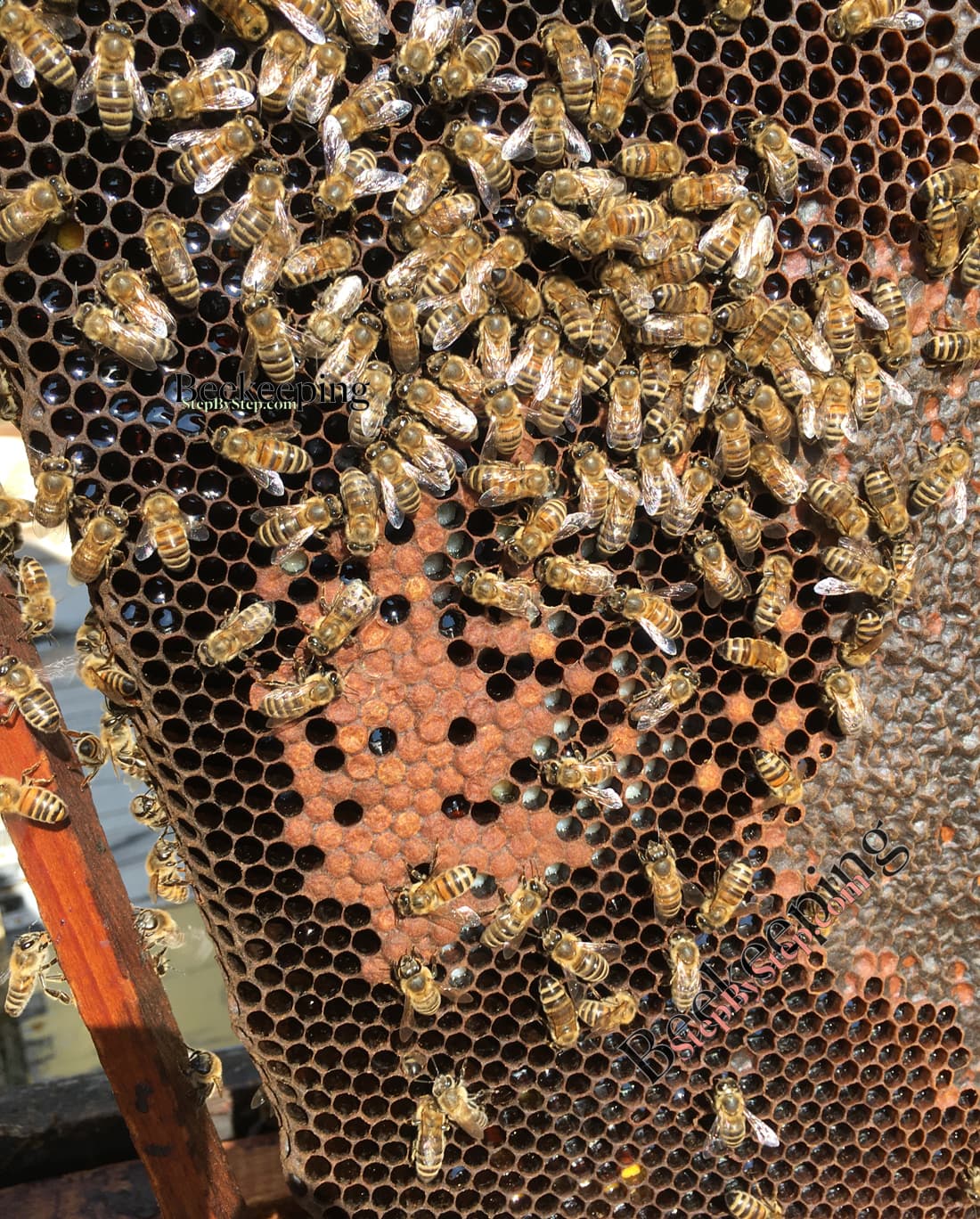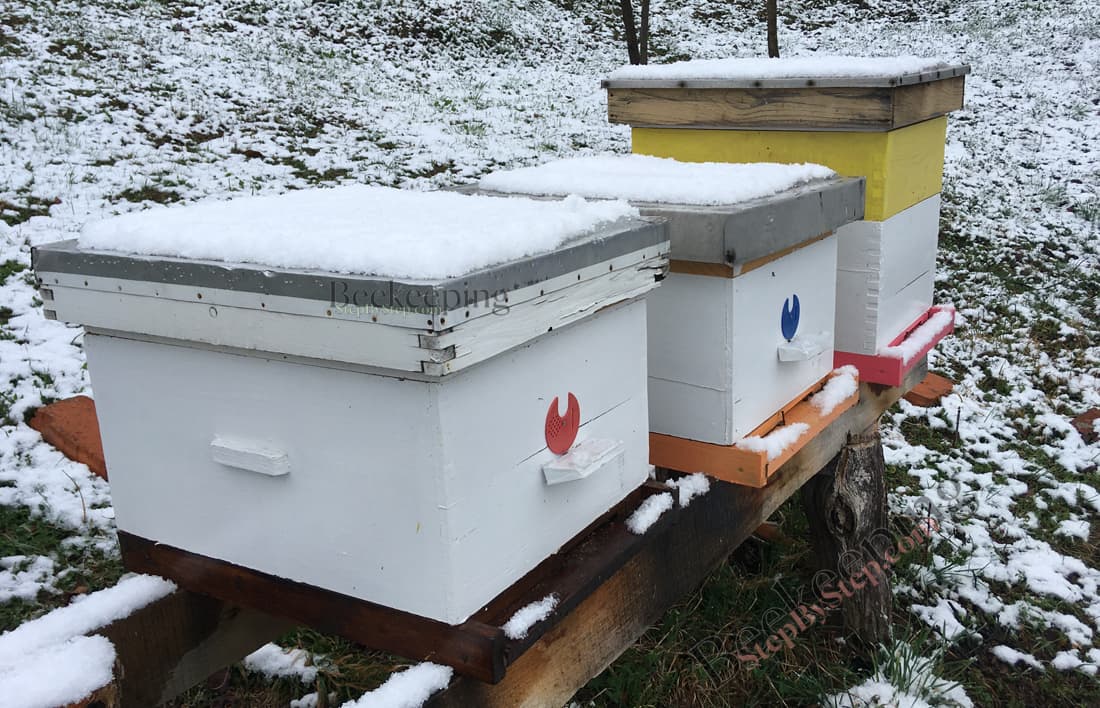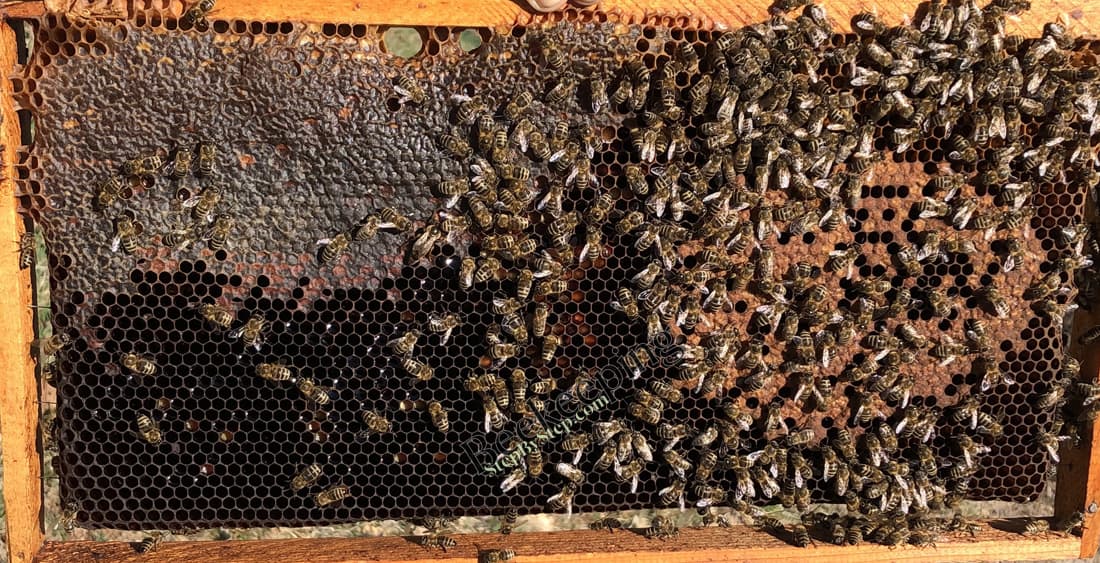Before the winter queens will usually stop laying. Read carefully - Winter In Honey Bee Colony.


You have to be sure if in your climate the queen stops laying eggs and if she does, when does it happen.
Keep in mind that elevation is an important element when it comes to climate.
If the queen stops laying
When this happens?
Unfortunately, we cannot help you determine when will the queen stop laying eggs in your region, because it completely depends on local conditions.
You should ask that question a local beekeeper.
This usually happens when the temperature drops.
Until then, the colonies should be fully prepared and with lots of honey for winter, and in no circumstances should you open the hives and disturb them.
It is always good to have more hives with which you can compare a debatable colony. Also, keep in mind that not all colonies are the same and that some queens may stop laying eggs earlier and some of them later, which is totally normal.

Choose an option:
This is not my case. Queens in my area still lay well. Return to the previous page: No Eggs, No Queen Cells - Is It Queenless?.
This is my case. Queens in my area are reducing and stopping laying eggs. Continue reading 👇.
During this period it is almost impossible to purchase a queen. And combining with another colony you risk damaging that other colony if you are not sure that the hive is really queenless. And by adding a frame with young brood (in order to determine if the hive is really queenless) you will debilitate the good hive from which you took the frame (which would be bad at that time of year).
Because of this, it is better to leave the hive just like it is.
The queens have significantly shrunk their brood or stopped laying eggs before winter
By now the colonies should be prepared and well fed for the winter and shouldn't be open.
Unfortunately, if you still suspect that some colony is without a queen, the best solution is to leave it like that.
If you are right, and the colony is queenless, it will perish but you won’t ruin any other colonies in an attempt to save that colony.
Losing the colony is never pleasant but it is a part of beekeeping for both beginners and experienced beekeepers.
The difference is that experienced beekeeper knows which colony is worth saving and which is not thus he is not making additional losses by trying to save what is not for saving.
It’s much better to loose one weak hive than to lose or weaken some good colony, or worse, colonies, trying to save that weak one.
If you’re not right, and the hive is not queenless it may survive the winter (if it is well prepared and healthy of course).